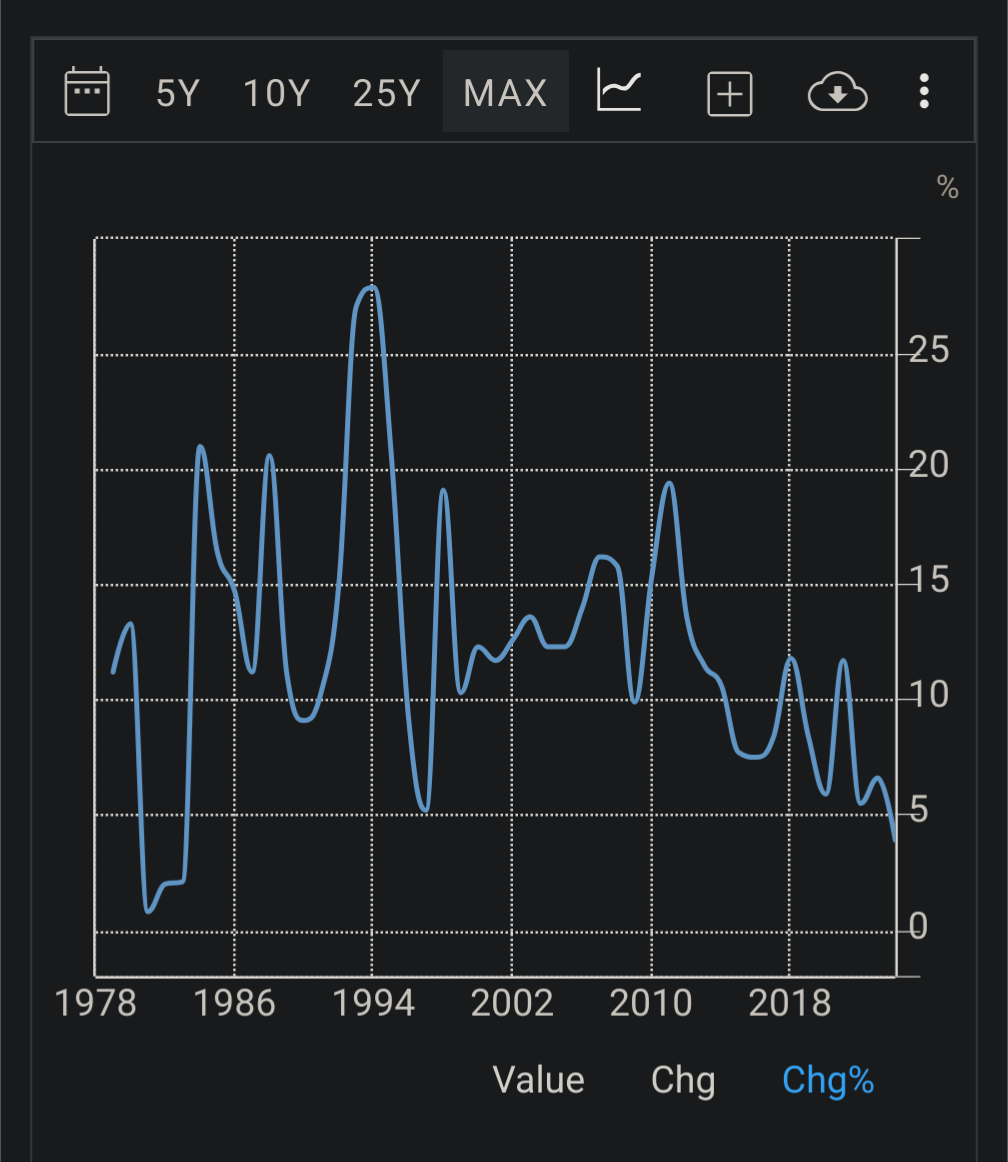

The same mechanisms that limit it on Kijiji and Craigslist, plus community labour by mods I imagine.


The same mechanisms that limit it on Kijiji and Craigslist, plus community labour by mods I imagine.


Sounds like they want a better deal either from PRC/RU or from the EU. It looks like 30% of their exports are going to PRC/RU and a bit over 30% to the EU.


In case you needed more proof that this system does not reward hard work.


Earlier this year the estimate was around 4- 5% of the population. It has only gotten higher since.


Very intereating! That means along with they have at least 2 firms licenced and making x86 CPUs.


Are these licenced x86 cores?


Why would Donnie protect Taiwan if he already has 50% of the chip production on-shore? Having 50% likely means having a completely Taiwan-independent supply chain. I feel like the only thing Donnie would achieve by pressing this issue is Taiwan’s people shifting towards negotiations with PRC.
If the Taiwanese feel there’s no deterrent against invasion on their side, then they’d feel there’s little to stop China from taking them over over when they decide to. Then the question becomes how would that takeover look like. Violent, non-violent, autonomy, no autonomy, and so on. Getting a good deal becomes less likely as time goes by and China catches up on the high tech front. So they’d prolly go for it sooner rather than later. Donnie can’t help himself from helping his sworn enemies can he.


Yeah I’m not going into the fake numbers debate. You choose to believe the numbers you believe. I made a specific point since the topic was factory automation which typiclly has effects on wages, productivity and employment. To me the trend in wages is the most interesting. Especially given the context of automation so far. If you believe the numbers, wages are rising rapidly. If the trend continues they will close the gap with us. Adjusted for PPP they’re almost at Greece’s average wage level. If you believe the numbers.


Wages (in manufacturing) increasing at a rate somewhat proportional (pasted a pic below since longer periods require login) to the growth of the economy, which means that workers are capturing a significant chunk of the economic growth. This is also reflected in the falling Gini index after its peak in 2010.

The Android app finally works the way you’d expect it. The UI no longer lags due to syncing. Syncing is much faster and more reliable.


This is why I think the narrative that China’s economy is going to collapse due to losing workers over time because of their demographics is false. I think the engineers running China are going to turn to mass automation and AI to increase their workforce’s labour productivity and maintain the ability to make everything.
Whether the Chinese workers would be able to capture more of that higher productivity than their western counterparts is an open question. Given some numbers I’ve seen, so far they have done better in this regard. But I imagine the Chinese capitalist class would be fighting tooth and nail to change that.


Oh so The Antichrist is regulation. Now it all makes sense. In a world where tech regulation is so obviously needed, he’s got to employ mythical themes of good vs evil to get people to believe the opposite.


Buy a loaded submarine on the hush-hush and sail it to Vancouver? I like it.


I don’t think we could realistically hide it from their agents but yeah, totally. That’ll probably be the way if our gov’t decides to do it.


Agreed. I just think that would make it certain.
If we could get nukes secretly I’d be all up for it.


I wish but… Do you think they won’t invade us at the whiff of nuclear armament?


If only there was a vaccine…


It’s not that socialism is a silver bullet that eliminates racism. It’s that capitalism makes it virtually impossible to stop competing for profit growth. This turns more nature and human labour into things, even if we throw those things away. That drives much higher exploitation of resources and people than needed to have decent average standard of living. And when some people organize to stop their own explotation, racism is deployed by capitalists to exploit more the groups that didn’t.
Socialism allows to stop the unlimited profit growth cycle and thus decrease the intensity of exploitation, which allows decreasing or stopping the explotation on the basis of racism. Doesn’t guarantee it but it surely makes it likely. Capitalism makes the opposite likely.
And that’s before we consider class consciousness’ effects on people.
That’s right. It’s an upgrade by virtue of supplying the material means to do large amounts of science. To provide the education people need, give them labs, tools and materials to work with. All of us would benefit from those scientific discoveries.